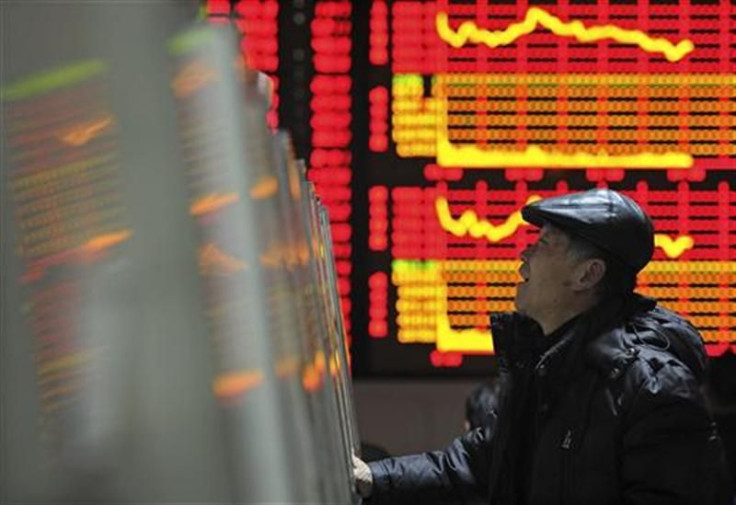Asian Markets Fall As Japan’s Economy Shrinks

Most of the Asian markets fell Monday as investor sentiment was weighed down by the concern that the downturn in the global economic condition continued to weaken Japan’s economy.
South Korea’s KOSPI Composite Index was down 0.10 percent or 1.94 points to 1902.47. Shares of Samsung Electronics Co Ltd rose 0.30 percent and those of Hyundai Motor Co gained 1.17 percent.
India's BSE Sensex marginally fell 0.03 percent or 6.29 points to 18677.39. Among the major losers were Tata Steel Ltd (1.89 percent), Hero Motocorp Ltd (1.11 percent) and Coal India Ltd (0.95 percent).
Japan's Nikkei Stock Average was down 0.67 percent or 58.68 points to 8698.92. Among the major losers were Meidensha Corp (3.50 percent), Shimizu Corp (2.74 percent) and Sony Corp (2.16 percent).
The Chinese Shanghai Composite fell 0.10 percent or 2.04 points to 2067.02. Hong Kong's Hang Seng marginally rose 0.09 percent or 19.58 points to 21403.96. Among the major losers were Sands China Ltd (0.83 percent) and HSBC Holdings Plc (0.81 percent).
Market sentiment turned negative with Japan's gross domestic product contracting in the third quarter compared to that in the previous quarter due to the soft global demand and the weakening domestic consumption in the world's third biggest economy.
According to the data released Monday by the Cabinet Office, Japan’s GDP, which measures the annualized change in the inflation-adjusted value of all goods and services produced by the economy, shrank to 0.9 percent in the quarter ending September 30, down from a 0.1 percent rise in the previous three months.
Investors sense that Japan’s economy will continue to weaken amid the global condition. “While we have to wait for the second estimate released on 10 December for finalizing the forecast going forward, we provisionally expect that the real GDP growth for Oct-Dec would remain slightly negative and would confirm technical economic recession that was already confirmed by other monthly economic indicators,” Credit Agricole said in a note.
Investors are also watching for signals from the 18th Congress of the Communist Party of China in Beijing regarding what kind of reforms can be expected. In the weekend, there was an announcement that foreign investors would be allowed to use foreign exchange to buy mainland portfolio assets.
Meanwhile, the market players are also focusing on Greece with delay in the Troika’s review due the disagreement between the International Monetary Fund and the European Union on the sustainability of the Greek public debt. The release of next tranche of bailout funds has become a worrying factor for investors.
© Copyright IBTimes 2024. All rights reserved.











